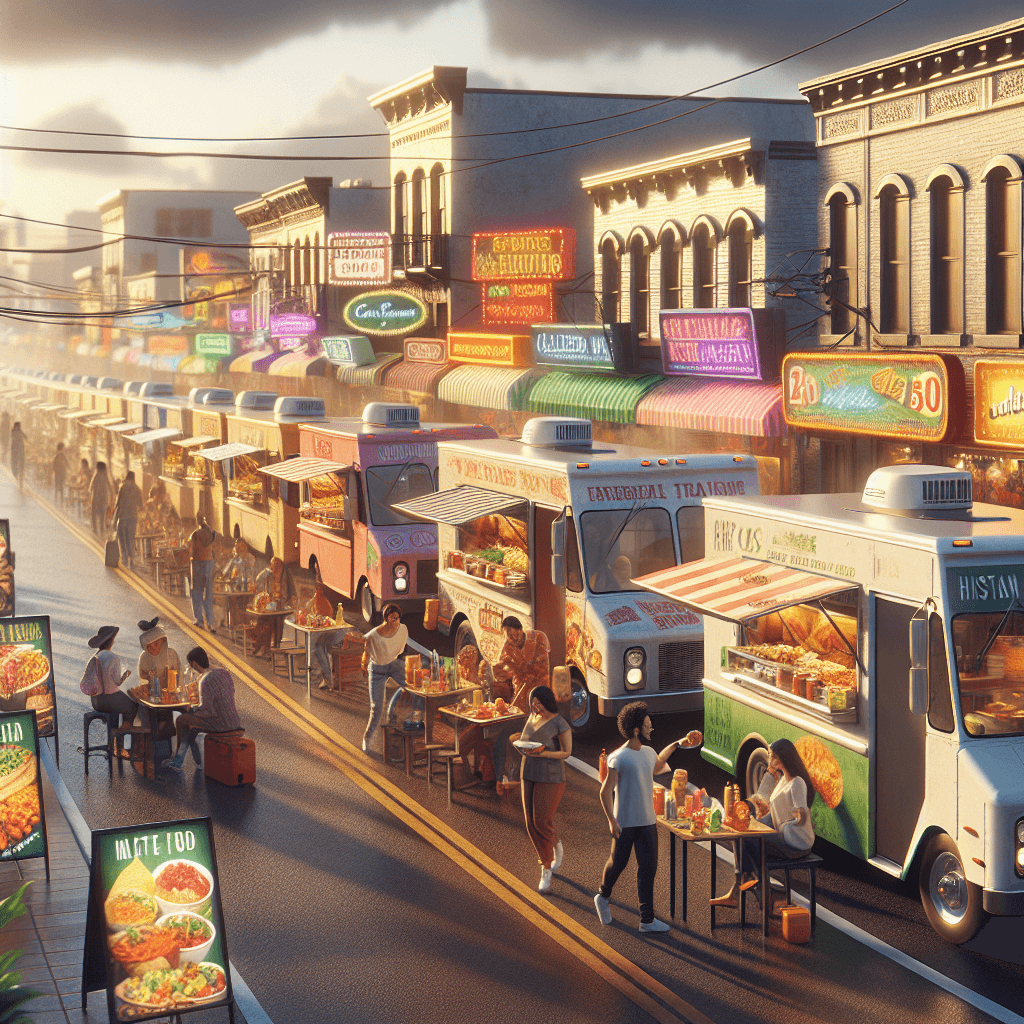In recent years, the culinary landscape has experienced a remarkable transformation, particularly in the realm of fast food. Gone are the days of greasy burgers and limp fries dominating the quick dining experience. Enter the food truck phenomenon—a movement that’s not only redefining convenience cuisine but elevating it to gourmet status. As food trucks continue to proliferate in cities around the world, they bring with them an innovative spirit and a commitment to quality that is changing fast food forever.
The Rise of the Food Truck Movement
The explosion of food trucks can be traced back to the economic downturn of the late 2000s. Many aspiring chefs and entrepreneurs found themselves without the means to secure a traditional restaurant space. As a result, they turned to mobile kitchens—flexible, cost-effective platforms that allowed them to showcase their culinary talents and serve delicious food to the masses. Today, the food truck industry is a booming segment of the food market, with thousands of trucks operating across the globe.
Gourmet Offerings on Wheels
Food trucks have transformed what it means to eat "on the go." Historically, fast food was synonymous with low-quality ingredients and quickly prepared meals. However, the gourmet food truck movement is changing that narrative. Today, you can find food trucks serving a diverse array of global cuisines, fusion dishes, and farm-to-table ingredients—all prepared with meticulous care.
From artisanal tacos to gourmet burgers made with grass-fed beef, the range of offerings is astounding. Many food trucks partner with local farms, ensuring that their ingredients are seasonal and sustainably sourced. Chefs often experiment with creative combinations, incorporating flavors and techniques from around the world to deliver dynamic menus that excite the palate.
The Unique Experience
One of the most significant changes food trucks are bringing to fast food is the concept of experience. For many food truck owners, it’s not just about filling stomachs; it’s about creating community and delivering hospitality. Food trucks often become gathering places, where patrons connect over shared meals, fostering an atmosphere of warmth and camaraderie.
Events like food truck festivals, pop-up markets, and social media campaigns also amplify this experience. Food lovers can track their favorite trucks through social media, follow their journeys, and even interact directly with the chefs. This creates a sense of connection and engagement that traditional fast-food chains lack.
Environmental Considerations
Another dimension that food trucks tend to embrace is sustainability. Unlike large fast-food chains that rely heavily on mass production, food trucks often operate with a smaller carbon footprint. Many food truck owners prioritize eco-friendly practices, utilizing biodegradable packaging, minimizing waste, and sourcing local ingredients to support the community.
This environmental consciousness aligns with the growing consumer demand for transparency and responsibility in food sourcing. As diners become more aware of the implications of their food choices, food trucks offer a sustainable alternative to traditional fast-food fare.
A Ripple Effect on the Restaurant Industry
The impact of the food truck movement has ripple effects on the broader restaurant industry. As gourmet food trucks gain popularity, traditional restaurants are increasingly trying to adapt by incorporating innovative and customizable menu items, focusing on quality ingredients, or even launching their own food truck extensions.
Moreover, food trucks are often seen as incubators for culinary talent—many chefs use food trucks as a launchpad to establish their brands and eventually transition into brick-and-mortar locations. This trend encourages a more diverse food culture that continually pushes the boundaries of creativity and quality.
The Future of Fast Food
As we look toward the future of fast food, one thing is clear: the food truck phenomenon is here to stay. The blending of gourmet culinary techniques with the accessible, on-the-go dining model poses both a challenge and an opportunity for traditional fast-food establishments. Evolving consumer tastes demand higher-quality, fresher, and more sustainable options, and food trucks are on the front lines of this transformation.
In conclusion, food trucks are not simply a passing trend; they represent a paradigm shift in how we approach food on the go. By offering gourmet options, fostering community engagement, and prioritizing sustainability, food trucks are changing the fast-food narrative—one delicious bite at a time. As this movement continues to flourish, it promises to keep redefining our expectations of convenience cuisine, ensuring that dining on the go is not just fast but truly gourmet.



